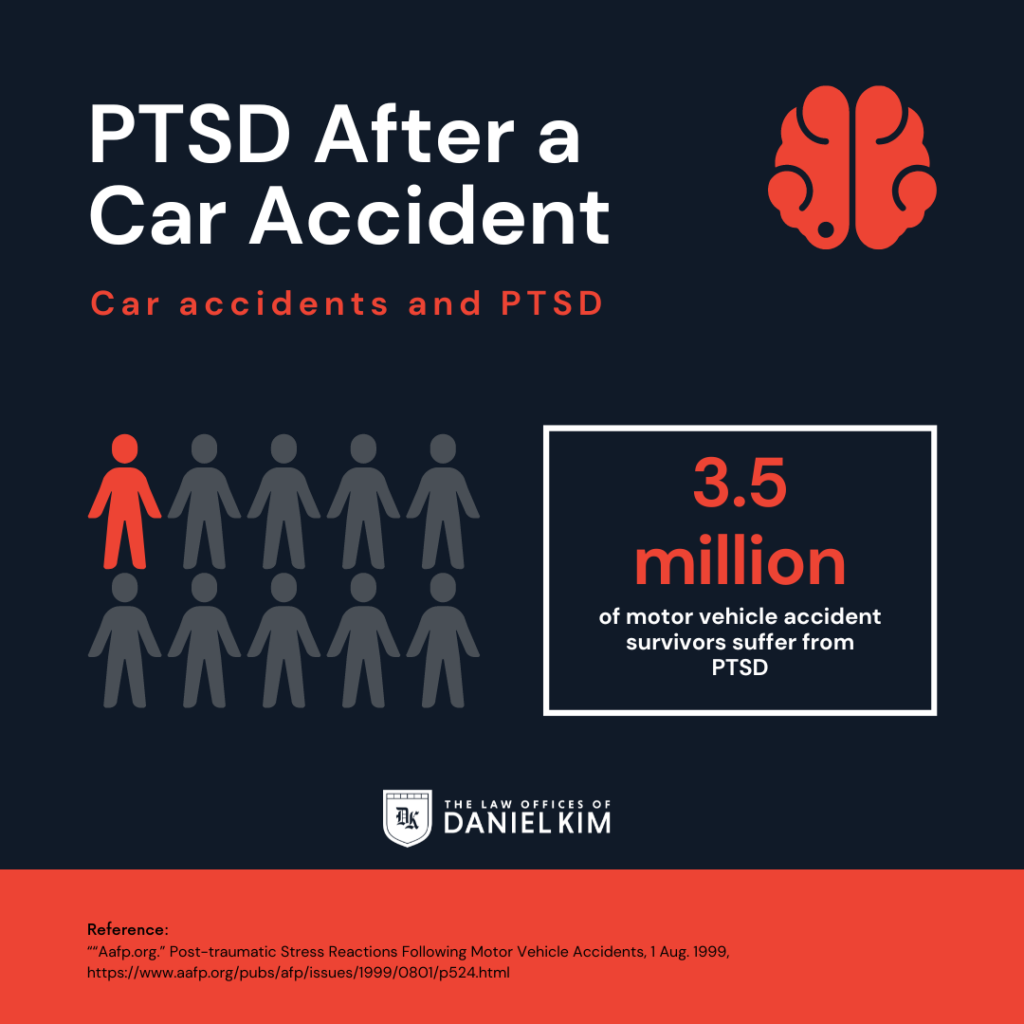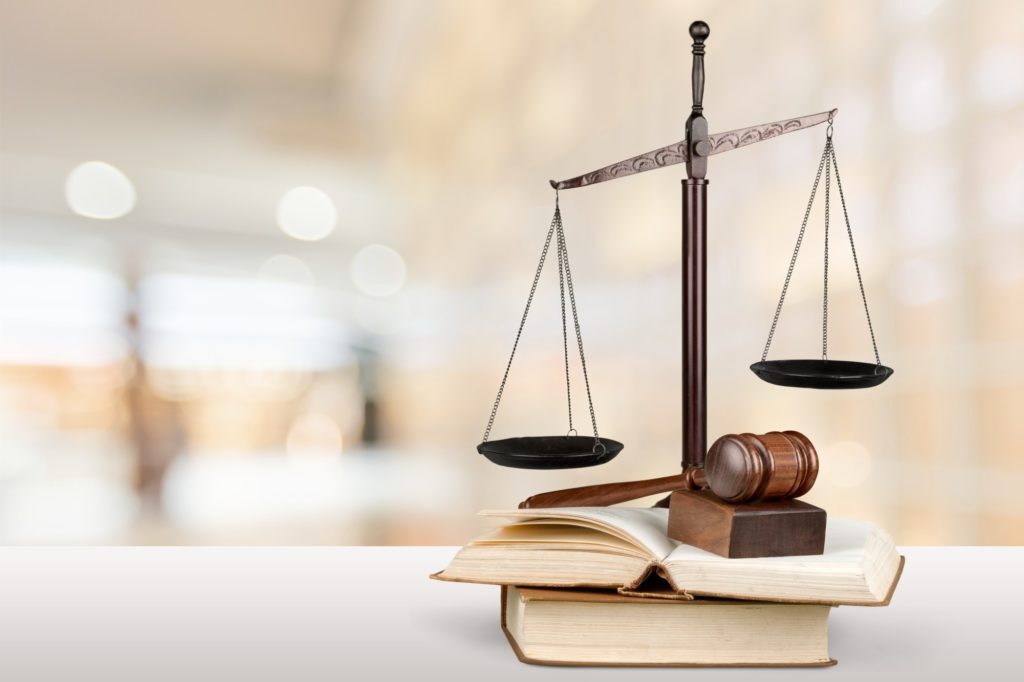PTSD From Car Accident
Car accidents are terrifying — over 20,000 people died in an auto wreck in the year 2021 alone. But a car accident doesn’t have to be fatal to be scary. Even minor car accidents can leave you feeling traumatized.
If you were recently in a car accident, you may be experiencing mental and emotional trauma. These effects may include severe anxiety, flashbacks, and even nightmares. If you’re experiencing any of these symptoms, you may be experiencing post-traumatic stress disorder (PTSD).
Experiencing PTSD after a car accident is possible. Here are the facts about developing PTSD after a car accident and if an experienced car accident lawyer can help you.
The Risks of Developing PTSD After a Car Accident
Car accidents are tragic and unfortunately common. This is why it’s common for auto accident survivors to develop PTSD.
In fact, between 25%-33% of motor vehicle accident survivors suffer from PTSD. However, certain aspects determine the likelihood of one developing PTSD after an accident. Common risk factors include whether you or a passenger were injured and the overall severity of the accident.
Those who suffer from PTSD after an accident also had some similar experiences during their accident. For example, many thought they were going to die. Actions after the accident, such as suppressing thoughts of the accident, intensified PTSD symptoms and made them last longer.
You may experience other actions related to anxiety and PTSD. For example, you may refuse to drive or get into a car. While driving does have some risks, avoiding this action entirely can intensify any phobias that one develops after an accident. All of these thoughts and actions interfere with the healthy mental processing and acceptance of the accident.
In addition, certain individuals are more at risk of developing PTSD than others. The qualities these individuals often share include:
- Family history
- Dissociation after the event
- Prior trauma
- Those who feel anxiety and fear more than others
- Felt you were going to die during the accident
- Lack of support from loved ones
- Prior psychological problems
Symptoms of PTSD: What’s Normal and What Isn’t
It can be difficult to know what qualifies as PTSD and what does not. That’s because everyone experiences emotions differently after a car accident.
What’s Normal
Feeling any of these emotions is completely normal:
- Guilt
- Shock
- Helplessness
- Grief
- Fear
- Confusion
Symptoms of PTSD
While it’s normal to feel many negative and traumatic emotions after a car accident, they do go away in time. If these emotions don’t go away after several months or they get worse, this is a strong indicator that you’re a PTSD victim. Some other symptoms you may have developed include:
- Emotional changes
- Avoidance (not driving or getting into a car)
- Negative mood and thoughts
- Intrusive flashbacks and memories
While all of these symptoms are part of PTSD, understand that nothing is wrong with you. Your mind processes trauma in many unique ways, and this often comes in the form of PTSD. Fortunately, there are many ways to treat PTSD.
How to Treat PTSD After a Car Accident
In order to treat or reduce PTSD symptoms, you can try a number of different therapy options. EMDR therapy and cognitive processing therapy are the recommended treatment types for PTSD patients. If these don’t work, medication is always an option.
EMDR Therapy
Eye movement desensitization and reprocessing (EMDR) therapy is a treatment option that’s popular with PTSD patients. It’s a nontraditional therapy type because it uses the patient’s eye movements to decrease the emotional impact of trauma. Francine Shapiro developed this therapy option in 1989.
While walking in the woods, she noticed her negative emotions decreased when she moved her eyes from side to side. She started using this technique on her patients and the results were positive. More research needs to be done to test the effectiveness of this treatment, though many practitioners use this technique today.
A therapist will approach this therapy using different steps. You may be required to follow their finger or another object using your eyes. Some use various hand and finger motions, such as tapping, and some may even include music. Then, they will ask you to recall the memory in detail. From here, your therapist will shift the conversation to a pleasant one.
Cognitive Processing Therapy
Cognitive processing therapy (CPT) is a form of the better-known cognitive behavioral therapy, though CPT treats patients with PTSD. This therapy modifies the way the patient sees their past trauma. The goal is for patients to better understand their trauma to reduce ongoing negative thoughts.
While EMDR has been effective, CPT is the most recommended form of therapy. Session length varies, but the average CPT treatment lasts 12 sessions.
Medication
Most professionals will recommend the two treatment options before resorting to medication. But if both don’t work, then know you can always try medication. Most professionals will prescribe antidepressants to combat anxiety and negative thoughts. The most common medications prescribed to PTSD patients include Paxil, Zoloft, Effexor, and Prozac.
Do You Need a Car Accident Lawyer?
If you’ve been struggling with PTSD after a car accident, you may wonder if you need an attorney. An attorney can help you recover any compensation you lost from therapy appointments, missed work, prescription medications, and more.
But understand that proving PTSD after a car accident can be difficult. You’ll need to hire a skilled lawyer in order to create a compelling case for you. For example, your attorney may request documentation of your therapy appointments and prescriptions to prove you’re undergoing PTSD treatment. You may also need a diagnosis from a mental health professional.
You’ll also have to look at the state of California and its laws regarding PTSD and car accident compensation. If you weren’t the driver at-fault, you can seek compensation from the at-fault driver. Emotional damages fall under the non-economic damages category and may also be considered “pain and suffering.”
PTSD From a Car Accident: Seek Legal Help Now
Do you believe have PTSD after a car accident? If you weren’t at fault, know your rights. The Law Offices of Daniel Kim can assist you recover from your trauma. Contact us today for a free consultation.




